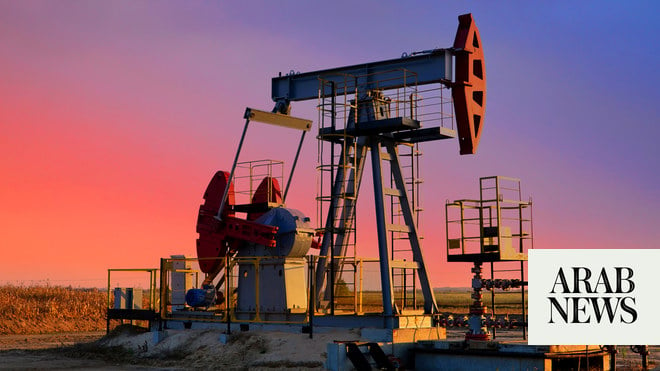
RIYADH: Oil prices rose on Thursday, with Brent breaking above $100 a barrel, as investors weighed tight supplies against the prospect of a large US rate hike that would stem inflation and curb crude demand.
Brent crude futures for September climbed 68 cents, or 0.7 percent, to $100.25 a barrel by 0400 GMT after settling below $100 for the second straight session on Wednesday.
US West Texas Intermediate crude for August delivery was at $96.85 a barrel, up 55 cents, or 0.6 percent, after rising 46 cents in the previous session.
Libya’s oil chief rejects sacking, says government mandate expired
On Wednesday, the head of Libya’s National Oil Corp. rejected the prime minister’s authority to sack him, raising the prospect of an open struggle for control of the state energy producer.
In a furious televised speech, Mustafa Sanalla said Prime Minister Abdulhamid Al-Dbeibah’s mandate to govern had expired and warned him not to touch NOC.
Libya’s messy political situation has already removed 850,000 barrels per day from the market this year through a blockade by eastern factions, underlining the risks to the already constricted global energy supply.
Sanalla accused the UAE, which previously backed eastern forces during the civil war, of being behind a series of Libyan oil blockades and his sacking.
Al-Dbeibah issued a decision on Tuesday to install Farhat Bengdara in place of Sanalla at the head of a new NOC board and then set up a committee to manage the transition.
Russian oil price cap plan can aid inflation fight
US Deputy Treasury Secretary Wally Adeyemo said on Wednesday that US prices remain too high, and the Biden administration must do everything possible to bring them down, including promoting a price cap for Russian oil exports.
Adeyemo told CNBC in an interview that he believes other countries will be “very interested” in the price cap idea because it would further bring down their costs for energy.
Implementing an oil price cap is the “next step” in pressuring Russia to end its war in Ukraine, Adeyemo said.
“We want to see the oil prices come down so that our consumers pay less, but we also want to reduce the amount of revenue that Russia earns from selling oil to make sure they have less money to prop up their economy,” Adeyemo said.
If successful, the cap will force Russia to choose between propping up its economy and funding its war effort in Ukraine, he added.
(With input from Reuters)












